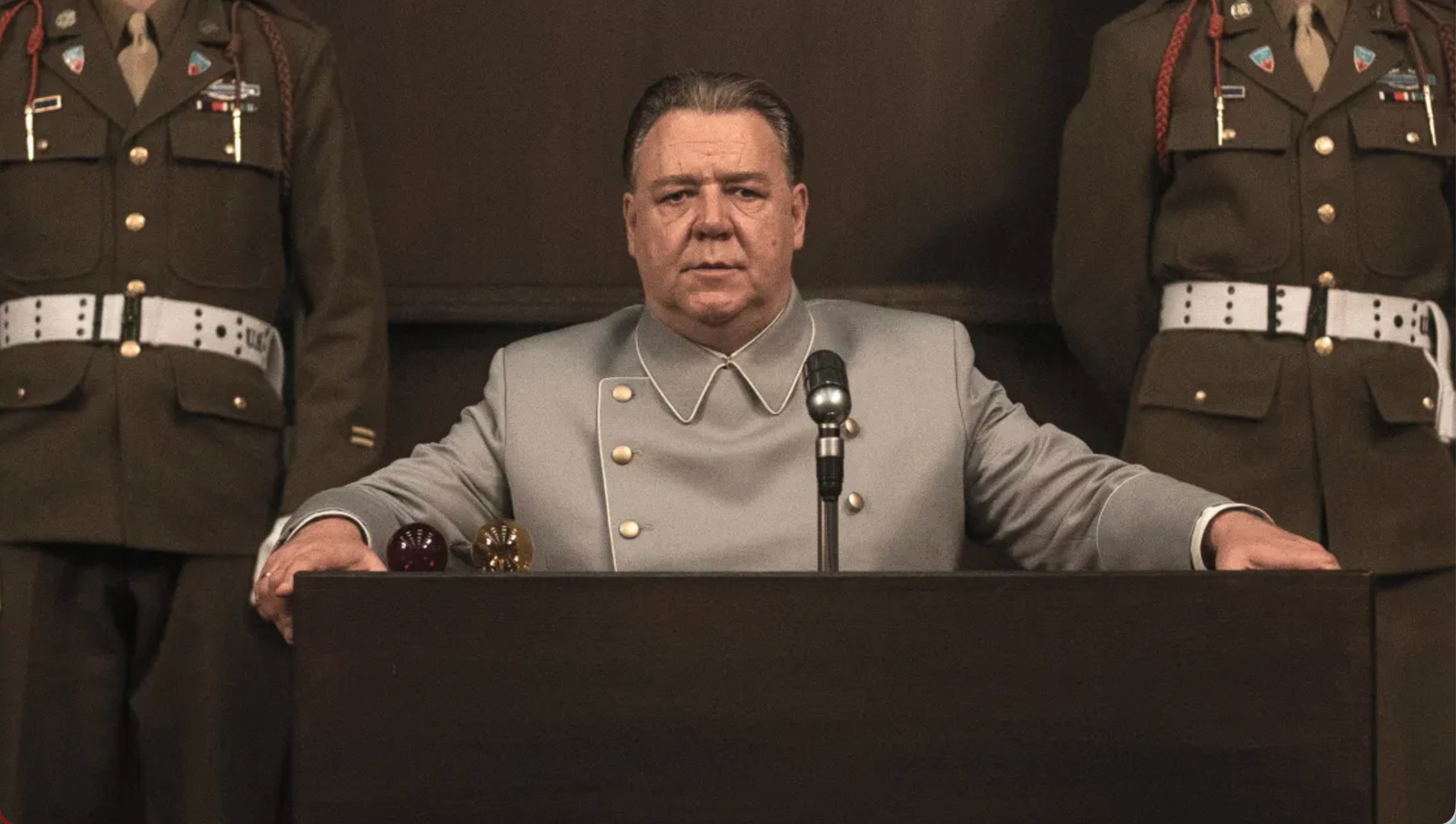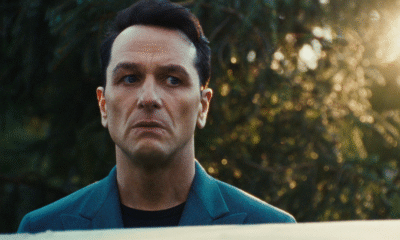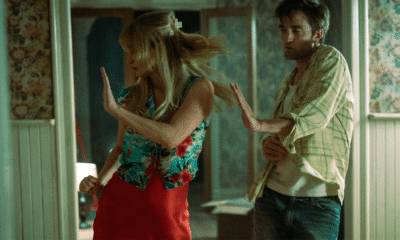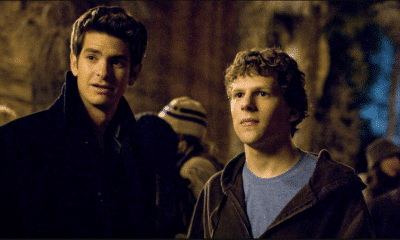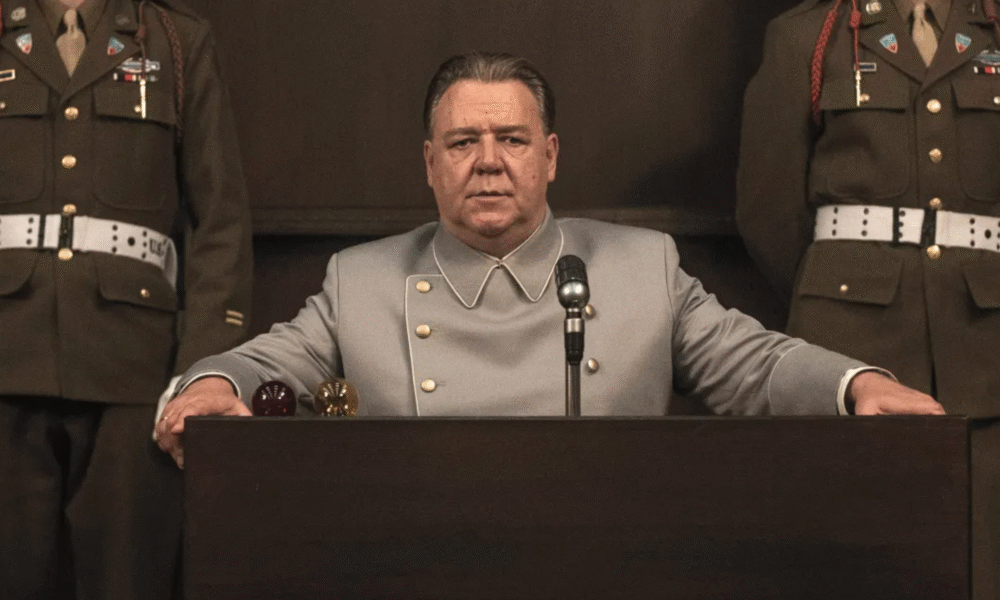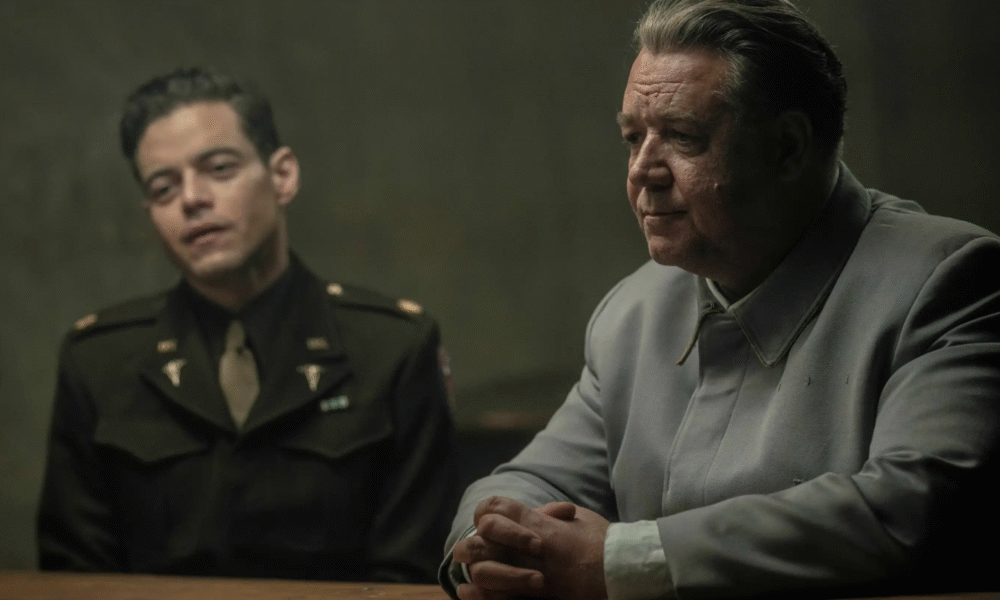psychological thriller
“Nuremberg” Review: Russell Crowe and Rami Malek Revisit the Darkest Corners of History
The Nuremberg Trials — one of the most defining moments in postwar justice — have long fascinated filmmakers. From Stanley Kramer’s Judgment at Nuremberg (1961) to the 2000 miniseries starring Alec Baldwin, the moral reckoning of Nazi war crimes has remained an indelible subject. But in Nuremberg (2025), writer-director James Vanderbilt takes a deeply psychological route, focusing not on the courtroom spectacle but on the fragile mind of U.S. Army psychiatrist Douglas Kelley, portrayed with unsettling intensity by Rami Malek. Kelley’s assignment was extraordinary: evaluate the mental states of captured Nazi leaders to determine if they were fit for trial — and keep them alive until justice was served. Among them was Hermann Göring, Hitler’s right-hand man, played with commanding magnetism by Russell Crowe.
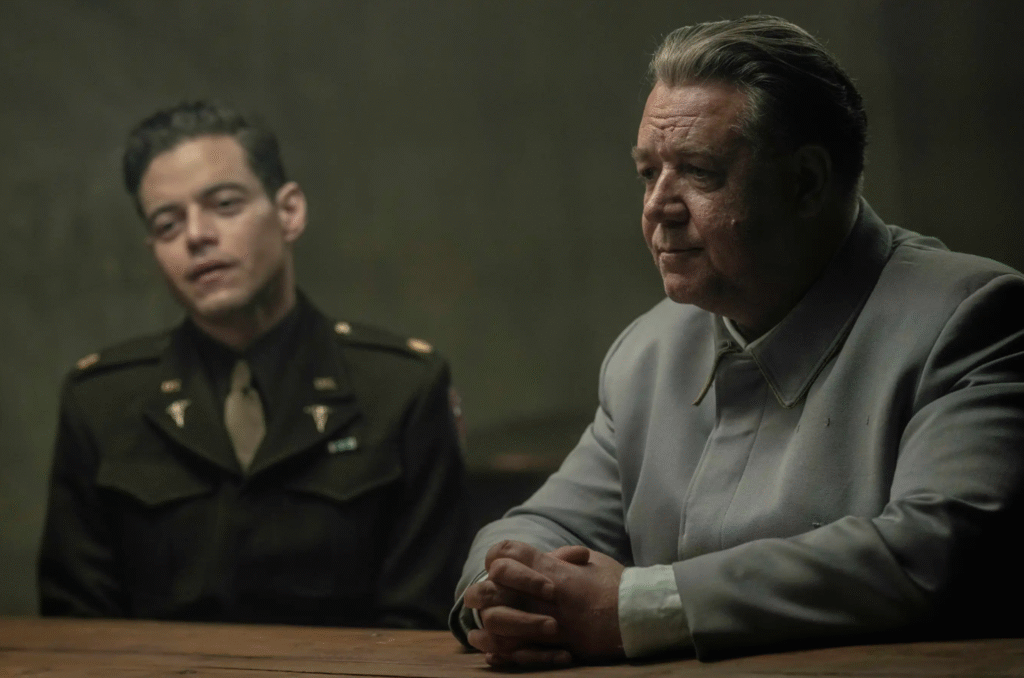
Rami Malek and Russell Crowe in Sony Pictures Classics ‘Nuremberg’
A Psychological Battle Between Predator and Analyst
The film’s core is a haunting series of exchanges between Douglas Kelley and Hermann Göring — two intellects locked in a moral tug-of-war. Hermann Göring’s arrogance and charm make him both loathsome and oddly fascinating, while Kelley’s growing obsession with understanding him blurs the line between empathy and manipulation. Rami Malek captures the psychiatrist’s ambition and unease, while Russell Crowe reminds us why he remains one of cinema’s most compelling screen presences.
Russell Crowe, who delivers lines in both German and English, portrays Hermann Göring with terrifying conviction — a man still performing for an audience that no longer exists. Rami Malek’s Kelley, meanwhile, becomes trapped in his own fascination, experiencing a psychological claustrophobia that mirrors the confinement of his subjects.
“It felt like there was no escape,” Malek told The New York Post. “Shooting those cell scenes with Russell was intense — we had to confront the darkness head-on.”
A Grand Yet Uneasy Historical Drama
James Vanderbilt, best known for Zodiac, draws from Jack El-Hai’s book “The Nazi and the Psychiatrist,” grounding the film in meticulous detail. The supporting cast, including Michael Shannon, Richard E. Grant, and Leo Woodall, enhances the sense of moral weight surrounding the trials. Yet for all its precision, Nuremberg sometimes struggles to merge its psychological insight with its sweeping historical narrative.
When real footage from the concentration camps appears, it’s the film’s most powerful moment — a sobering reminder of why these trials mattered, and why they still resonate in an era of historical revisionism.
View this post on Instagram
A Reminder of Fragile Humanity
By its end, Nuremberg delivers a stark truth: the capacity for evil isn’t confined to monsters but found within ordinary people who surrender their morality to ideology. As Kelley’s own writings later warned, “There is little in America today which could prevent the establishment of a Nazi-like state.”
Nuremberg may not be flawless, but it is profoundly unsettling — a film that forces us to confront the human face of inhumanity.


